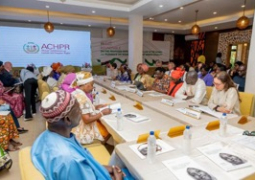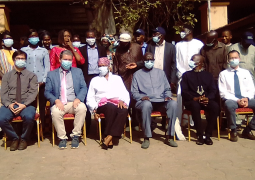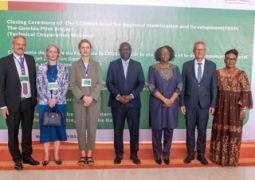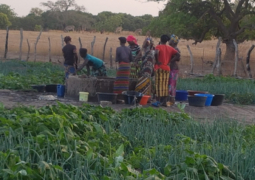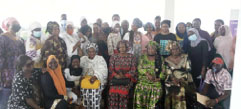
The challenge aims at finding, supporting, and accelerating early-stage grassroots solutions that will address challenges in access to markets, in transportation and distribution, in agro processing/storage facilities and promoting climate smart ventures.
The challenge is meant to create an opportunity for women to bring forward innovative and locally owned solutions that tackle challenges to women entrepreneurs amplified by Covid-19 whilst attempting to improve growth finance of impactful business models including those owned and managed by women.
Yassin Gai, Associate Officer at ITC commended GCCI for their professionalism and effective engagement during the process leading to the launch. “As a champion and valuable partner to this challenge, GCCI brings on board a wealth of technical experience and a broad network to support the challenge winners,” she said.
According to her, “We have witnessed the unprecedented stress that the Covid- 19 pandemic had in The Gambia in the past two years. The Covid-19 pandemic has profoundly impacted rural women, specifically rural women entrepreneurs.”
She said rural women and girls face specific challenges due to traditional gender norms, limited infrastructure and services informality as well as disruptions to rural livelihoods.
She noted that covid-19 has not only proved challenging but has also revealed the role that entrepreneurs can play by using innovative business approaches to solve social problems.
She recalled that last year in partnership with KMC and GCCI , they launched the KMC Mayor Challenge, which awarded one million dalasis to three innovative young entrepreneurs who developed smart and effective business solutions that tackled socio-economic challenges caused by the Covid-19 pandemic within KMC.
“This year, we have specifically designed a challenge to tackle four significant problems faced by rural entrepreneurs. These are challenges to market access, transportation and distribution, agro-processing, and climate-smart venture.
“Women have a crucial role in ensuring a full sustainable economic recovery from the Covid-19 pandemic,” she stated, noting that supporting rural women entrepreneurship is at the heart their work.
She expressed ITC’s commitment to building and improving the economic resilience of rural women entrepreneurs.
She urged all registered women-owned businesses, social entrepreneurs, NGOs and TVET graduates to apply for the challenge and share innovative solutions that would benefit rural women entrepreneurs during the post Covid-19recovery period.
Sarata Conateh in her official launch statement on behalf of the GCCI CEO highlighted the importance of the project saying, there are many opportunities mainly for women embedded in the project.
She cautioned women to show more commitment and implement businesses that are viable to better improve their economic status.


